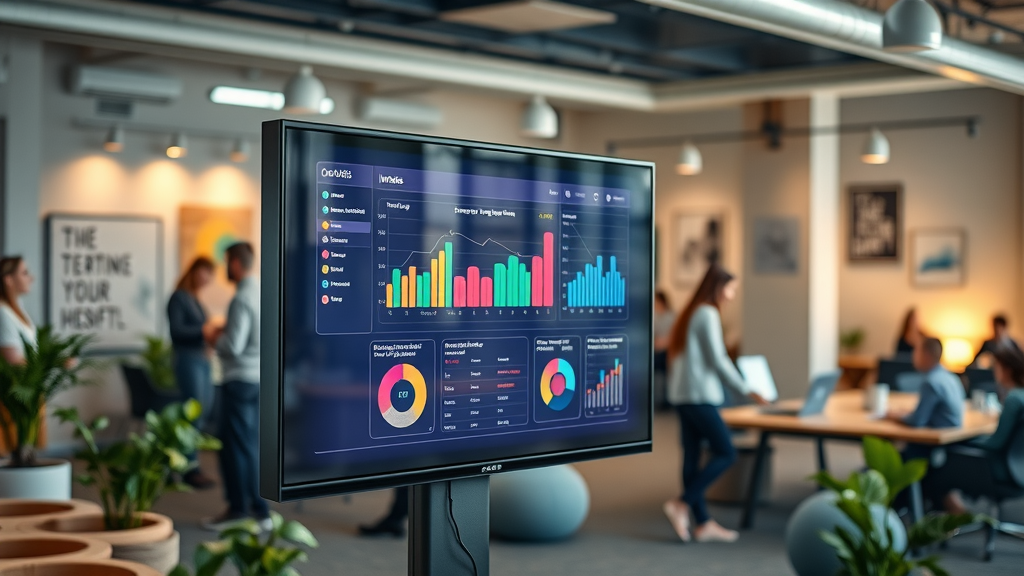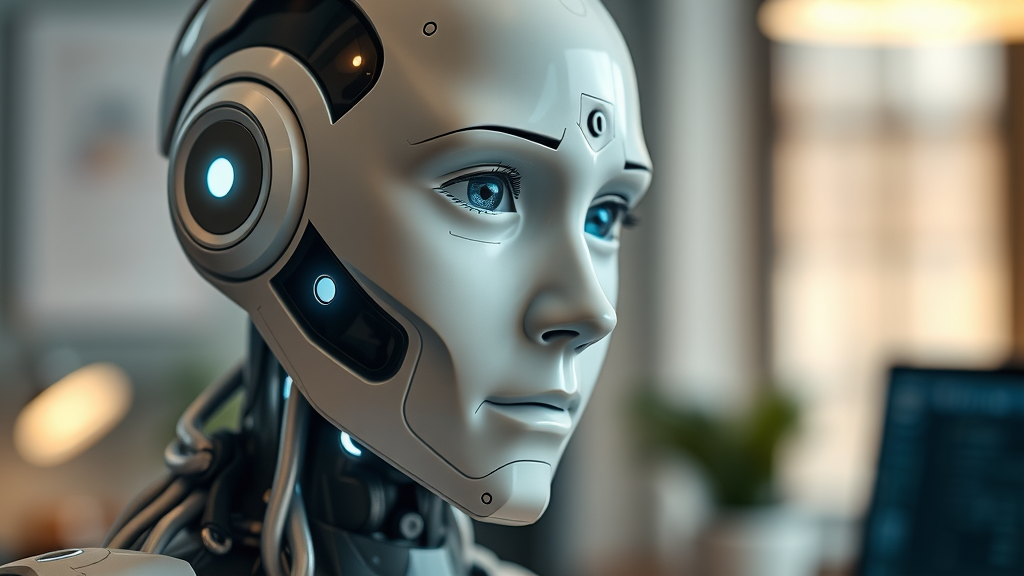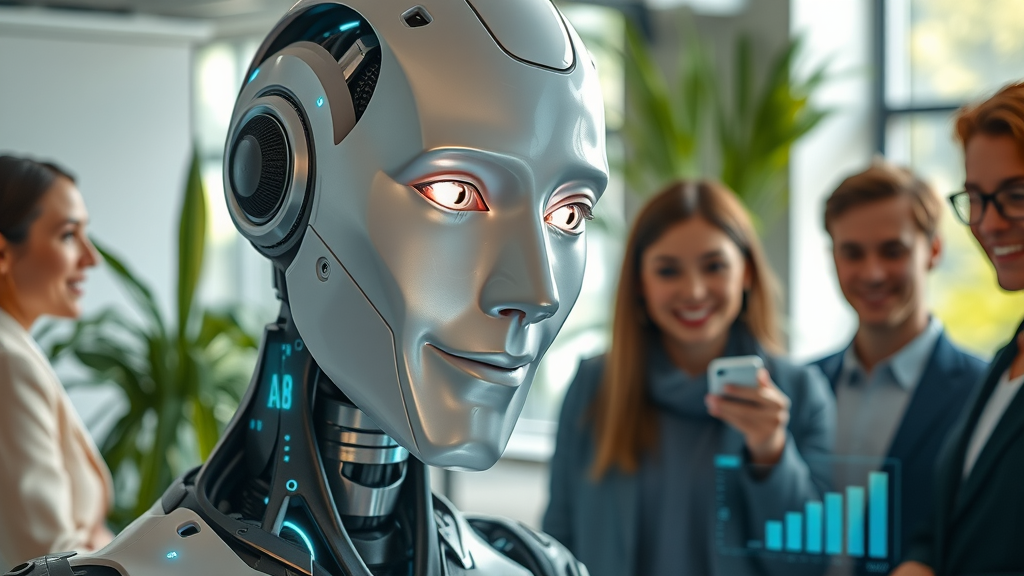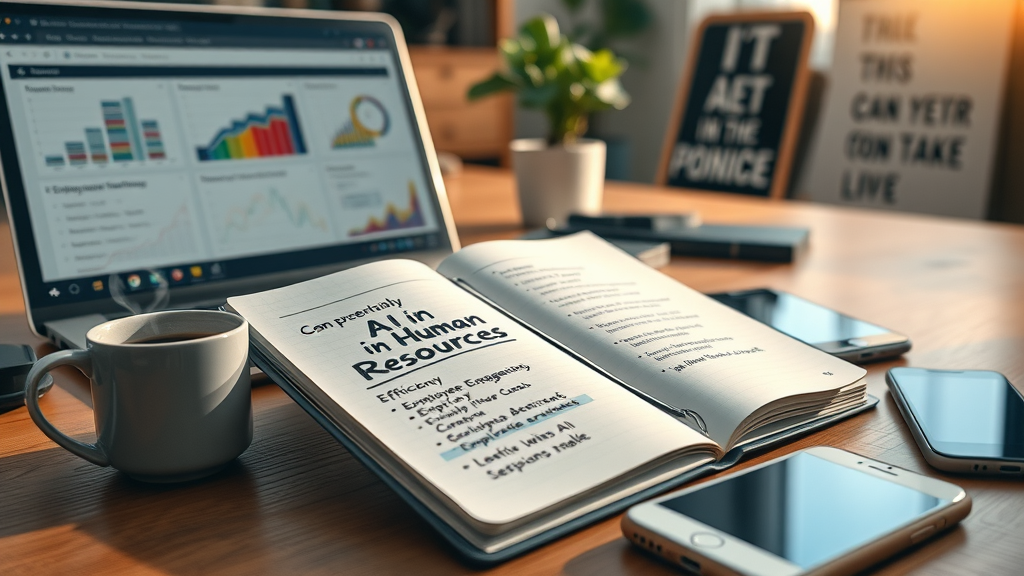In a rapidly evolving workplace, the integration of AI in Human Resources is not just a trend—it’s a game-changer. “Unlocking Potential: How AI in Human Resources is Transforming the Workplace” delves into this revolutionary shift, revealing how AI can streamline recruitment, enhance employee engagement, and foster a culture of continuous improvement. By mastering this technology, HR professionals can unlock unprecedented efficiencies and insights, ultimately turning potential into performance. Join us as we explore the future of work and the crucial role AI plays in shaping it!
Understanding AI in Human Resources
Artificial Intelligence (AI) is reshaping various sectors, and AI in Human Resources is at the forefront of this transformation. AI refers to the simulation of human intelligence in machines programmed to think and learn. In HR, it helps automate processes, analyze vast amounts of data, and make informed decisions.
Key Features of AI in HR
| Feature | Description |
|---|---|
| Automation | Streamlines repetitive tasks like scheduling and data entry. |
| Data Analysis | Provides insights from employee data, improving decision-making. |
| Personalized Experiences | Tailors employee training and engagement programs. |
| Predictive Analytics | Identifies trends and predicts future hiring needs. |
- Automation: AI tools can handle administrative tasks, allowing HR teams to focus on strategic initiatives.
- Data Analysis: AI analyzes employee performance data to inform strategies for improvement.
- Personalization: With AI, HR can create personalized employee experiences that foster engagement and retention.
“Understanding the role of AI in HR is crucial for organizations aiming to stay competitive in a technology-driven landscape.”
The Role of AI in HR Teams
The implementation of AI in Human Resources has become essential for HR teams looking to enhance their operations. From recruitment to retention, AI provides HR professionals with tools to improve efficiency and effectiveness.
AI Solutions for HR Tasks
AI offers a range of solutions specifically designed to address common HR tasks:
- Recruitment Tools: Automate job postings, candidate screening, and interview scheduling.
- Onboarding Programs: Streamline the onboarding process using AI-driven platforms.
- Performance Management Systems: Utilize AI to track employee performance and provide feedback.
Ways AI Improves HR Processes
The impact of AI on HR processes is profound:
- Efficiency: Reduces the time spent on administrative tasks.
- Data-Driven Decisions: Facilitates informed decision-making based on real-time data.
- Enhanced Candidate Experience: AI chatbots can answer candidate queries, improving communication.
- Continuous Learning: AI can recommend training programs based on employee performance and interests.

Benefits of AI in Human Resources
The benefits of integrating AI in Human Resources are significant. Organizations that leverage AI can achieve cost savings, improved employee engagement, and enhanced hiring processes.
Cost Savings Through AI Implementations
Businesses are increasingly adopting AI to reduce operational costs. According to a study, companies that implemented AI solutions reported saving up to 30% on HR-related expenses.
Enhancing Employee Engagement and Retention
AI can personalize employee experiences, which is crucial for engagement and retention. By analyzing employee feedback and performance data, AI helps HR tailor programs to meet individual needs.
Improving the Hiring Process with AI
AI streamlines the hiring process by:
- Reducing bias in candidate selection through data-driven insights.
- Shortening the time-to-hire with automated screening processes.
- Enhancing job descriptions using data analytics to attract top talent.
“The integration of AI in HR is not just about efficiency but also about fostering a more inclusive and engaged workplace.”

AI Applications in HR
AI applications in HR are diverse, offering solutions that support various HR functions.
AI Chatbots in Recruitment
AI chatbots can handle initial candidate inquiries, schedule interviews, and provide updates on application status, ensuring a smooth recruitment process.
Predictive Analytics for Talent Management
Predictive analytics tools use historical data to identify trends in employee turnover, helping HR strategize retention efforts.
Virtual Assistants for Employee Support
Virtual assistants can answer employee questions, provide training resources, and assist with onboarding, enhancing the overall employee experience.
| Application | Benefits |
|---|---|
| AI Chatbots | 24/7 support and quick responses to candidate inquiries. |
| Predictive Analytics | Informed decision-making regarding talent management. |
| Virtual Assistants | Personalized employee support and training recommendations. |

Challenges and Ethical Considerations of AI in HR
While the benefits of AI in Human Resources are clear, organizations must also navigate challenges and ethical considerations.
Data Privacy and Security Issues
AI relies heavily on data, raising concerns about privacy and security. Workforce data must be protected to prevent breaches and maintain employee trust.
Job Displacement Concerns
As AI automates tasks traditionally performed by humans, there are concerns about job displacement. HR must balance efficiency with the need for human oversight.
“AI should complement human roles, not replace them. The human touch remains vital in HR.”

The Future of AI in Human Resources
The future of AI in Human Resources looks promising, with continuous advancements in technology that will further enhance HR functions.
Trends to Watch in AI and HR
- Increased Personalization: AI will provide more personalized experiences for employees.
- Advanced Predictive Analytics: Improved algorithms will enhance talent management strategies.
- Greater Integration: AI will become more integrated into daily HR operations.
Key Takeaways for HR Leaders
- Embrace AI to streamline HR processes and enhance employee experiences.
- Prioritize data privacy and ethical considerations in AI implementation.
- Stay informed about emerging trends to leverage AI effectively.

Frequently Asked Questions
-
What is AI in Human Resources?
AI in Human Resources refers to the use of artificial intelligence technologies to automate HR processes, analyze employee data, and enhance decision-making. -
What are the benefits of using AI in HR?
Benefits include cost savings, improved efficiency, enhanced employee engagement, and better hiring processes. -
What challenges does AI pose to HR?
Challenges include data privacy issues, potential job displacement, and the need for ethical considerations in AI use.
Conclusion
The integration of AI in Human Resources is transforming the workplace, offering immense benefits while also presenting challenges. By understanding and addressing these factors, HR professionals can harness the power of AI to improve processes, engage employees, and drive organizational success.
Key Takeaways
- AI enhances efficiency and decision-making in HR.
- Personalization through AI boosts employee engagement and retention.
- Ethical considerations and data privacy are crucial in AI implementation.
- Staying informed about AI trends is essential for future HR strategies.
As organizations move forward, embracing AI in human resources will be vital for maintaining a competitive edge in the evolving world of work.

 Add Row
Add Row  Add
Add 




Write A Comment